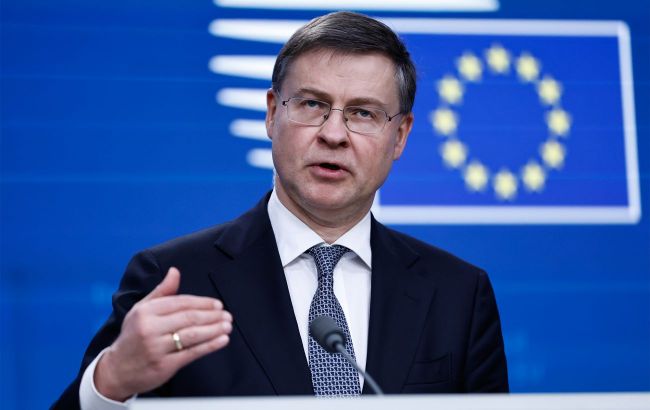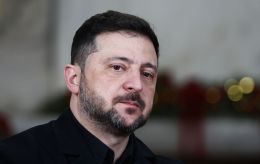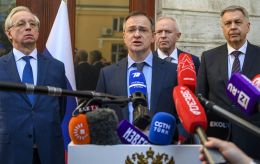EU working with IMF to determine Russia's reparations for Ukraine
 Photo: European Commissioner for Economy Valdis Dombrovskis (Getty Images)
Photo: European Commissioner for Economy Valdis Dombrovskis (Getty Images)
The European Commission intends to take into account the International Monetary Fund’s assessment of Ukraine’s financial needs for the next two years when determining the volume of reparations from Russian assets, according to European Commissioner for Economy Valdis Dombrovskis, reports Reuters.
The European Union is discussing the use of frozen Russian assets to secure such a loan. This would make it possible to support Kyiv’s finances amid the reduction of direct military aid from the United States.
Reparations loan from Russian assets
“What the Commission is proposing is a reparations loan, so basically providing a loan to Ukraine by using cash balances of immobilized Russian assets without... touching Russia's claim on those assets,” Dombrovskis said.
According to him, details, timing, and amounts of the loan are now being discussed. The IMF’s conclusion on Ukraine’s needs, which the Fund is already finalizing, will be important in determining the volume.
Positions of EU countries
Spain’s Finance Minister Carlos Cuerpo said the European Commission’s proposal is expected in October. “From the Spanish perspective, we will be supportive,” he noted.
The G7 countries hold about $300 billion in Russian Central Bank assets, a significant part of which is located in Europe. €194 billion is frozen in the Belgian depository Euroclear, of which about €170 billion has already been converted into cash balances.
Shared risks and guarantees
According to Dombrovskis, the mechanism could be applied in all G7 countries where Russian assets are held. He clarified that the idea had been discussed with G7 finance ministers.
Under the plan, Ukraine will begin repaying the loan only after receiving reparations from Russia. The risks under the credit will be distributed among the governments of EU countries.
According to sources, the scheme provides for the replacement of Russian assets in Europe with zero-coupon European Commission bonds. These securities will be backed by guarantees from EU countries participating in the initiative.
Ukraine’s needs
Finance Minister Serhiy Marchenko outlined Ukraine’s external financing needs for the duration of the new IMF program.
“In total, the need for funds to finance the four-year program may amount to between $150 and $170 billion,” he said in the Verkhovna Rada.
Marchenko confirmed that for 2026, the uncovered need for external financing currently stands at $18 billion, based on the calculated average annual exchange rate of 45.7 hryvnias per dollar.
The current IMF program with Ukraine for 2023–2027 provides for $15.6 billion from the Fund and about $150 billion from partners. Prime Minister Yulia Svyrydenko has appealed to the IMF for a new program. The IMF is inclined to prepare a new program with Ukraine instead of the current one.

